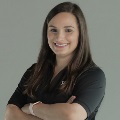Rachelle Reed, Ph.D., ACSM-EP |
June
22, 2022
Public health is having a moment right now, and the fitness industry must rise to the occasion. The truth is, the fitness industry is uniquely positioned to improve many public health outcomes through promotion of regular physical activity. Positioning physical activity as part of the health care continuum — as an accessible, integral part of a healthy lifestyle for all people — is a big part of the path forward. And, we need high-performing fitness professionals to lead the way!
Fitness professionals are the “boots on the ground,” translating decades of exercise science and sports medicine research into practice. In many ways, they are the heart of the field: They change lives every day, and sometimes every hour. They have the knowledge to help those new to exercise and the skill to train elite performers. They change behaviors and impact quality of life. So, what does it take to excel as a fitness professional? I’ve outlined five must-have qualities below.
1. Credibility
To me, credibility is founded upon the trifecta of formal education, certification and practical experience. Earning an industry-leading certification helps you establish a strong foundation of key exercise science concepts while also requiring you to stay up to date by pursuing continuing education. Practical experience — or application of the knowledge you’ve gained through your education and credentialing — is critical for success. If you’re newer to the industry, seek out practical experience by programming for a friend or family member, or shadowing an experienced professional,
2. “Hungry-yet-Humble” Attitude
Recall your most influential teacher or coach. Chances are, their passion and hunger to improve your life is imprinted in your memory. Fitness professionals who have this same, genuine “it” factor can make a big splash. In a service profession, though, humility is key. Be confident in what you know; understand the limits of your knowledge; and be humble enough to seek guidance, take feedback or refer out to other professionals as needed.
3. A Zest for Learning
I’m a firm believer in intentional learning. Learning must not stop when you enter the job market — but, as your life gets busier with coaching clients and teaching group classes, you must be intentional with the time you set aside to learn. Maintaining your certification(s) through continuing education helps you prioritize study time, and I encourage you to try some of the following ideas too: If you’re into social media, follow accounts like
ACSM to see what free, evidence-backed resources are available. Consider attending a virtual or in-person conference within the industry. And take workouts that differ in format and delivery style than the ones you coach — I guarantee you will learn something by putting on your “client hat” and remembering what it feels like to learn something new.
4. Skilled Communication
Effective communication helps in all aspects of life. But when you’re working 1:1 with clients or delivering a workout to a large group of people, communication takes center stage. Clear, confident delivery of instructions and education, with the ability to flex toward the communication and learning styles of the client(s) in front of you, can make or break the group exercise experience. Mastery of vocal inflection, and incorporation of nonverbal communication like gestures and body language, are also key to building trust and delivering a great product.
5. Empathy
Fitness journeys are personal and often emotional, so the ability to show empathy — or understand and share the feelings of another — is critical for success in the fitness industry. Purposeful development of skills like reflective listening, asking open-ended questions and motivational interviewing can help improve your ability to show empathy to your clients. Properly placed empathy can build trust, and that trust is often what keeps clients coming back for more.
Honorable mention goes out to “practicing what you preach,” or modeling the behavior you wish to inspire in others. After all, fitness professionals will be best equipped to serve their communities — and improve public health outcomes — if they have more energy, less fatigue, improved sleep quality, improved mood, more endurance and stronger hearts. And you know what helps with that?
Exercise.
Additional Resources:
Blog |
A Day in the Life of a Group Exercise Instructor
Blog |
How Being Dual Credentialed Can Improve Your Hiring and Salary Potential

Don’t miss the second edition of
ACSM’s Resources for the Group Exercise Instructor — available this summer! This updated edition is fully aligned with the eleventh edition of
ACSM’s Guidelines for Exercise Testing and Prescription. It is an essential resource for undergraduate exercise science programs, students in pre-professional programs and those independently preparing for the
ACSM Group Exercise Instructor (ACSM-GEI) certification. This new edition of ACSM’s Resources for the Group Exercise Instructor highlights the skills needed to effectively lead group exercise in gyms, studios, recreational facilities and clubs.
 Rachelle Reed
Rachelle Reed has a B.A., M.S. and Ph.D. in exercise physiology, along with an ACSM-EP and NASM-CNC. She brings forth expertise in body composition, metabolism, physical activity measurement and behavior change, along with over a decade of group coaching experience. Dr. Reed aims to translate research about physical activity and behavior change into practice, bridging the gap between academia and the fitness industry through her work. She joined Orangetheory Fitness in 2019, where she is currently senior director of health science and research. Prior to joining Orangetheory, Rachelle was the kinesiologist for Pure Barre, a brand owned by Xponential Fitness. She lives in Watkinsville, Georgia, with her husband, Sam, their two kids (AJ, 4, and Madison, 5 months) and their dog, Roy.